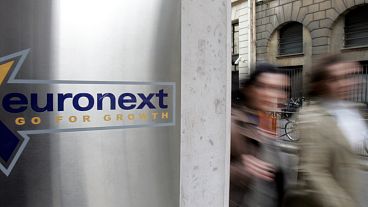Novo Nordisk faces a pivotal moment as it grapples with supply issues amid soaring demand for its weight-loss drugs. Despite impressive financial gains and market dominance, the Danish pharma giant must navigate a critical decision.
Excess demand over supply is typically a scenario any business would welcome, yet Lars Fruergaard Jørgensen, CEO of Novo Nordisk, is currently grappling with a significant strategic challenge.
With a market capitalisation of over €500 billion, Novo Nordisk has emerged as Europe's foremost company, outperforming the luxury empire of LVMH, led by Bernard Arnault.
The cornerstone of Novo Nordisk's remarkable rise? Its flagship anti-obesity medications, Wegovy and Ozempic. Both drugs contain semaglutide, a GLP-1 receptor antagonist, promoted for obesity management by the European Medicines Agency and the Food and Drug Administration (FDA) in the United States.
Pioneering this niche has resulted in a profit windfall for Novo Nordisk. Net sales were DKK 232.3 million (€31.2 billion) in 2023, marking a 31% surge from a year earlier and a 65% boost from 2021. The firm's earnings per share (EPS) in 2023 hit DKK 18.62 (€2.50), up by 52% from the previous year. Projections for 2024 are robust, with anticipated sales growth of 18-26% at constant exchange rates (CER), and an operating profit growth forecast of 21-29% at CER.
Reflecting this positive trend, Novo Nordisk's share price has surged by 71% in the past year, and more than double since weight-loss drugs’ approval by the regulator.
The challenges ahead: Overcoming supply issues as competition heats up
The company is already advancing beyond its injectable weight-loss treatments with a semaglutide pill, a less invasive alternative promising to expand its revenue stream.
This oral formulation, requiring a 50-milligram dose of semaglutide, necessitates nearly twenty times the quantity used in Wegovy's most potent weekly injection. This has thrust Novo Nordisk's manufacturing capabilities into the spotlight, as current production struggles to keep pace with the burgeoning demand.
Novo Nordisk and CEO Jørgensen now stand at a strategic crossroads: to either scale up production or moderate the launch of the new pill, risking market share to competitors such as Eli Lilly & Co., Amgen Inc., and Pfizer Inc., who are actively developing their own alternatives.
Acknowledging the initial underestimation of demand for the oral drug, Novo Nordisk's recent acquisition of Catalent, Inc. for $11 billion (€10.18 billion) marks a strategic move to bolster manufacturing capacity, promising enhanced flexibility and expanded production capabilities from 2026 onward.
With the industry's competitive landscape, any delay in increasing production could be costly. Competitors are not waiting. Eli Lilly, for instance, has crossed a market cap of $600 billion (€555 billion), launching Zepbound, a weight-loss injection priced at $1.060 (€981), undercutting Novo's Wegovy at $1.350 (€1.250).
Amgen has also reported promising results from the phase 1 trial of its weight-loss drug, further heating up the competition.
In this highly lucrative market for weight-loss drugs, expected to reach over $300 (€282) billion, resting on one's laurels is not an option, and even a scenario of overwhelming demand can turn into a disadvantage.
Despite the outstanding achievements of Novo Nordisk thus far, the company's continued success is contingent upon its ability to address and surmount the supply challenges of its products.



